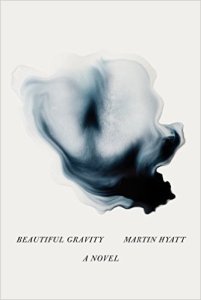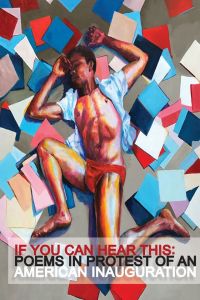Country music isn’t a place I ever expected myself to venture as a fiction reader. Music in general isn’t something I find easily translated to text, and yet two recent books I’ve read have had music intrinsic to their core narratives, and have done so deftly.
But country music? I can’t imagine a genre of popular music less open to a gay experience than country music. Don’t get me wrong, some of the country music stars themselves are definitely fetching (their names I sometimes vaguely know thanks to magazine covers from my bookstore days), but the industry itself—and the fan base—have never struck me as remotely friendly.
Obviously, I know that’s a sweeping generalization, and even this Canuck has heard of Steve Grand, but beyond a few recent blips, my experiences in the rural Canada of my youth has left me with a less than welcoming sense of the country music community, even up here.
All that to say when I was handed Country, Jeff Mann’s novel, I wasn’t entirely sure what to expect. From the blurb alone, I knew Country featured a bunch of things I didn’t necessarily connect with: country music, rural culture, and living a closeted life.
I shouldn’t have worried.
Mann brings us Brice Brown, a big name Country star, and introduces us to him at his peak, moments before the tipping point that sets the novel in motion. Brice is overdue for a new record, deeply closeted, and finding company to rent online, and about to be outed by a former lover.
It is that last that sends Brown crashing down from the top, of course, and it’s important to note that the novel is set in the late 90’s. Though in today’s world it wouldn’t be difficult to imagine as hard a fall as Brice Brown takes, setting the novel in the recent past served a double purpose to me: the exploration of the homophobia in play was bang-on perfect, and the impotent rage Brown often feels is mirrored in the reader’s experience. So recent as a few decades ago, it would be unheard of for a public “Good old boy” to be outed. Today might hold a different story—might—but in placing the narrative firmly in a time and place where support would be small and unheard, Mann gives us a reminder of both progress and of the hateful frustrations.
I often speak of how queerfolk have to struggle to pass their narratives onward, as we don’t inherit them like other cultures. Fiction can often pass these narratives on just as well, and there’s no doubt that the fictional Southern and country culture at play in Country is a narrative Mann is passing on. The viciousness of the assault on Brice Brown’s name, music, image, and career is borderline relentless, and as the man watches all things crumble, the pain is present—and realistic—to behold.
That Brice Brown himself is by no means a perfect man—he’s as much a product of his culture as those who throw hate at him from within it— works well to ground the story further into that reality. Brice is just as likely to prejudge others as he himself is judged, and watching his journey unfold was a satisfyingly refreshing take for this kind of story. More, Brice’s struggles with depression and his often self-destructive and self-loathing attempts to tame his “black moods” garner empathy without pity, a balance I’ve rarely found achieved so well.
Lest you think the whole novel is a dark and dismal ride, let me be clear: it is not. As much as Brice’s decent is powerfully written, so is the path forward. And, of course, it wouldn’t be a Jeff Mann novel if there weren’t rough-and-tumble country man around to capture Brice Brown’s heart, in this case in the form of a delectable delinquent, Lucas. Fans of Mann are no doubt aware already of his adept erotic prose, and they will not be let down.
As the story moves from the macro “fall of the Country Music Star” and into the micro of a smaller cast of characters who gather around Brown when he finds a place to go into retreat, it’s these characters that bring forth the queer “chosen family” value to the story, and where the healing—not just Brice’s healing—comes into play. There are laugh-out-loud moments in Country born of these characters, which include a gay rural retreat owner who is so much larger than life (and yet so like so many people I’ve met), and a gun-toting lipstick lesbian who delivers some of my favorite lines of the whole book. And for fans of Mann’s other works (especially Cub), there are a few moments included for the reader that are richly rewarding. These light moments don’t steal from the realism, either, but add to it: there’s a kind of “laughter in the face of the bad” tone that pops up throughout Country, and it is a sense I can certainly understand and empathize with. At some point, I think most queer people have faced those moments.
Beat us down? When we get back up, our laughter will be all the louder for our survival.
With “survival” being the often raw and minimal goal from the moment Country begins, the reader is left with no sense that “happily ever after with rainbows” is on the menu, which raises the tension of the book all the higher. In turn, I was angry, frustrated, empathetic, or sad—often aimed at Brice himself—but at no point was I anything less than invested in seeing where Brice’s journey would end.
In fact, like so much of Mann’s work, the strength is in how incredibly evocative it is: it’s lyrical, erotic of course, and full to the brim with the sights, smells, and sheer weight of the country setting.
Oh, and of course: the food. Some day I will learn not to read a Jeff Mann book while remotely hungry, as the food alone is described so enticingly I find my mouth watering and wishing I had the slightest idea how one made “scrapple.”
Country is a love letter to a lover who refused to return the affection, sent by someone who is learning to find something else—or someone else—as worthy of the love.
Reviewed by ‘Nathan Burgoine






